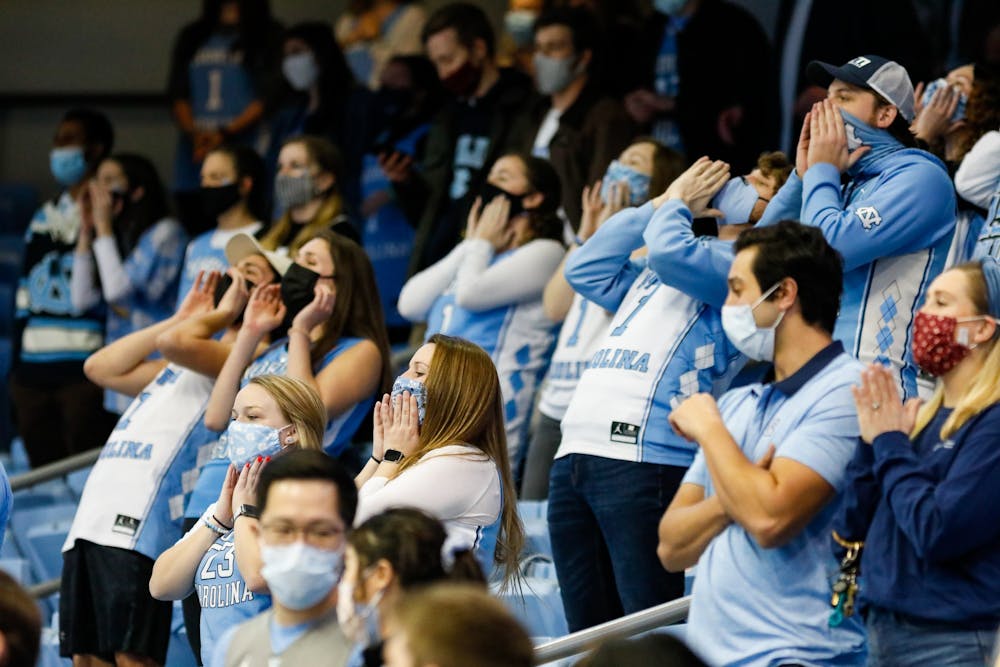Carolina Athletics announced a group licensing program specifically targeted towards current UNC athletes on Tuesday, which is the first of its kind for current NCAA athletes.
UNC worked with boutique brand agency The Brandr Group to create the program. UNC athletes who opt in to the voluntary program will have the opportunity to market themselves in groups of three or more within the same sport, or groups of six or more across multiple sports.
This isn’t the first time UNC has worked with The Brandr Group on a licensing deal; In April, Carolina Athletics announced a similar voluntary group licensing program with former athletes from the men’s basketball and women’s soccer programs – with figures like Mia Hamm and Hubert Davis having already signed on. Carolina Athletics’ Tuesday press release referenced the “early success” of the Alumni Group Rights program when announcing this new program.
This announcement comes on the heels of the NCAA’s decision to allow college athletes to profit from their name, image and likeness (NIL). The NCAA’s interim legislation went into effect on July 1, which was followed by Governor Roy Cooper signing an executive order setting NIL guidelines for schools in North Carolina.
Many in the industry had seen NIL as an inevitability for some time, but the move to reform compensation for college athletes escalated as U.S. states began to pass NIL laws this summer. And on June 21, the Supreme Court ruled unanimously that the NCAA’s restrictions on education-related benefits violated antitrust laws, further pushing the NCAA towards action.
UNC Athletic Director Bubba Cunningham had advocated for a group licensing program dating back to May, when he and former UNC volleyball player Malaika Underwood published an op-ed in the Sports Business Journal touting group licensing as “the best first step for NIL.”
“When we thought we were going down this path for Name, Image and Likeness for student-athletes, I thought this was the logical next step,” Cunningham said in a video released by GoHeels TV on Tuesday. “Let’s take what we’re doing institutionally, let’s apply it to the students, let those students go to market and also share in the revenue, particularly jersey sales and the video game. Those are the two things people want, so that made the most sense to me.”
The new NIL rules make it particularly easy for individual athletes to go out on their own and secure brand deals or start social media campaigns. But the group licensing program seems to fill a different niche: merchandise sales.
The video game Cunningham referred to is EA SPORTS’ NCAA Football, which was one of the most popular sports video game franchises in the country before EA ended its circulation in 2014 because of lawsuits that alleged the company used athletes' likenesses without permission. But in February, EA announced the return of the video game.



